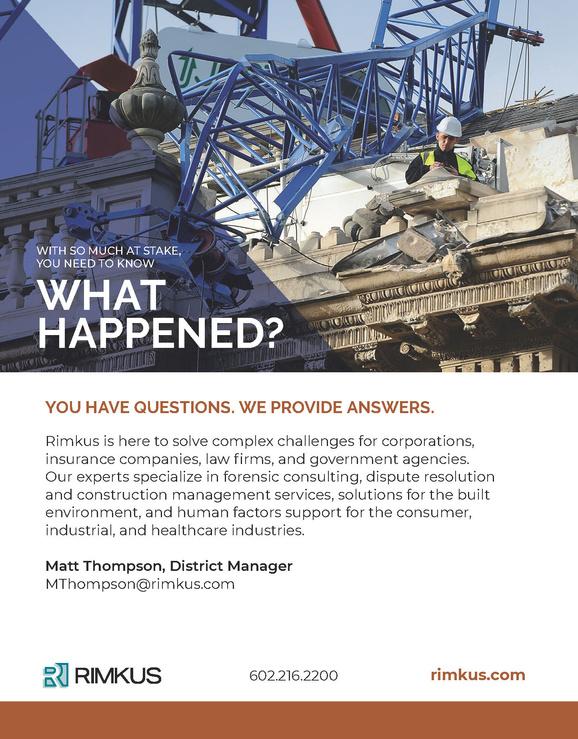
1 minute read
I (May) Survive:
A Respondeat Superior Claim May Survive Despite Dismissal Of A Claim Against An Employee

Advertisement
By: Maria R. Kupillas, Esq. Tyson Mendes
Plaintiffs alleged the employee’s negligent driving caused the accident, and the driver was in the course and scope of his employment at the time of the accident As such, plaintiffs alleged SRP was negligent under the theory of respondeat superior
Because SRP is a political subdivision of the State of Arizona, a claim against SRP must be filed within one hundred and eight (180) days.[2] Plaintiffs timely filed a claim against SRP but did not file a claim against the employee driver until almost fifteen (15) months postaccident. The superior court granted the employee driver’s motion for summary judgment against Laurence due to failure to timely file the claim.[3]
When a tort claim against an employee is dismissed, can a claim against the employer for respondeat superior be maintained? This is the question the Supreme Court of Arizona recently addressed in Laurence v. Salt River Project Agricultural Improvement & Power District.[1] The answer is, it depends.
In Laurence, the Arizona Supreme Court held dismissing a claim against an employee with prejudice, for reasons unrelated to the merits of that claim, does not require the dismissal of the respondeat superior claim against the employer. This decision overturned a 1945 decision to the contrary.
Background
Jacob Laurence and his minor son were injured in a motor vehicle accident involving a truck owned by Salt River Project (“SRP”) and driven by its employee.
SRP then filed a motion for summary judgment, arguing since the claim against its employee was dismissed, SRP could not be held vicariously liable for the employee driver’s negligence. In making its arguments, SRP relied on DeGraff[4]. The plaintiffs responded that since summary judgment was granted for reasons unrelated to the merits, SRP could still be found vicariously liable.

In DeGraff, the Court held dismissing a claim against an employee with prejudice for any reason exonerates the employee from negligence and simultaneously adjudicates the claim against the employer.[5] The superior court agreed with SRP and the Court of Appeals affirmed.
Under DeGraff, the claims against SRP were properly dismissed, however, the plaintiffs asked the superior court be reversed and the precedent overturned, urging the Supreme Court to conclude dismissal of a claim against an employee for reasons not related to the case’s merits does not foreclose a respondeat superior claim against the employer.
Webinar: Loss of Earnings Capacity and Future Medical Care Cost Analyses


August 30, 2023 at 12pm
Reconnectwithfriendsandcolleaguesat the2023AADCAnnualMeetingandFall KickoffReceptiononSeptember22,2023!







